APUSH Unit 3 DATES AND DESCRIPTIONS
1/49
Earn XP
Description and Tags
Name | Mastery | Learn | Test | Matching | Spaced | Call with Kai |
|---|
No analytics yet
Send a link to your students to track their progress
50 Terms
The French and Indian War
1754-1763
War between French and British in American colonies also involving Native Americans. Results in the loss of French territory in North America
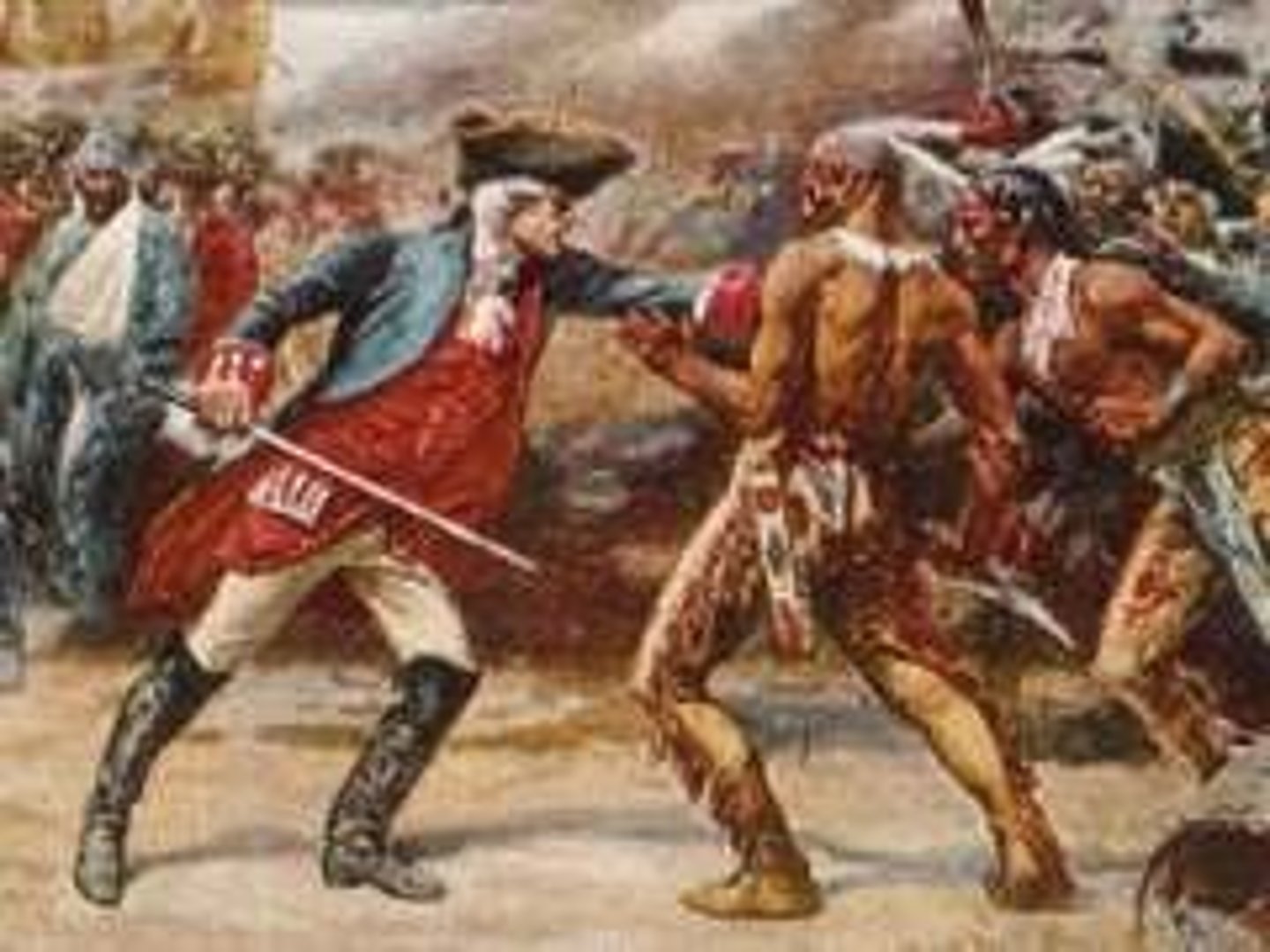
patriots
American colonists who were determined to fight the British until American independence was won
republican government
System of government in which power is held by the voters and is exercised by elected representatives responsible for promoting the common welfare.
Common Sense
A pamphlet written by Thomas Paine that claimed the colonies had a right to be an independent nation
legislative branch
Branch of government that makes the laws
loyalist
American colonists who opposed the war for independence.
natural rights
the idea that all humans are born with rights, which include the right to life, liberty, and property
Declaration of Independence
1776 statement, issued by the Second Continental Congress, explaining why the colonies wanted independence from Britain.
The Constitution
New format of government focuses more on a central national power and less on states 3 branch government that limit each other
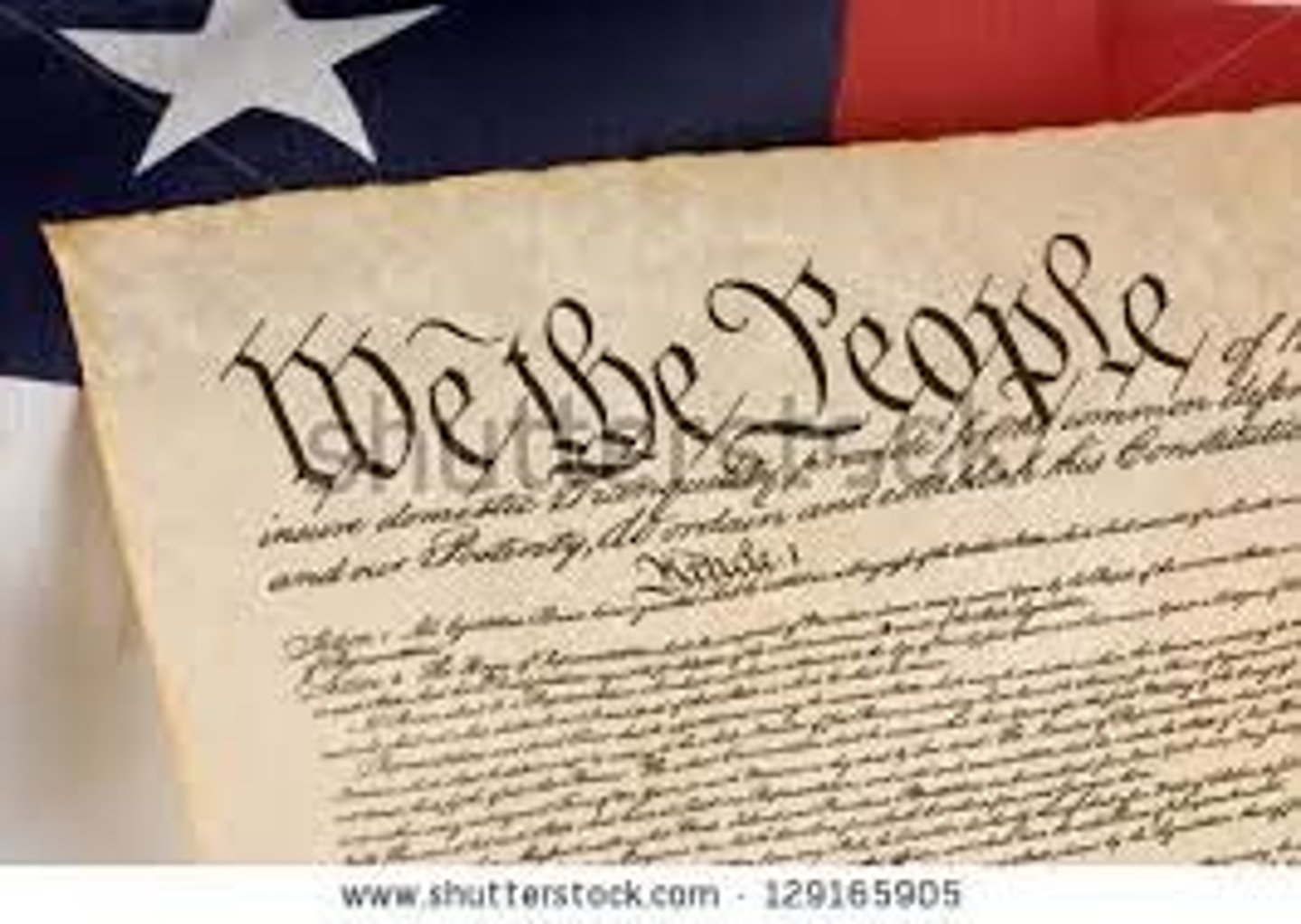
Bill of Rights
the first ten amendments to the Constitution, which guaranteed the civil rights of American citizens.
Federalism
A system in which power is divided between the national and state governments
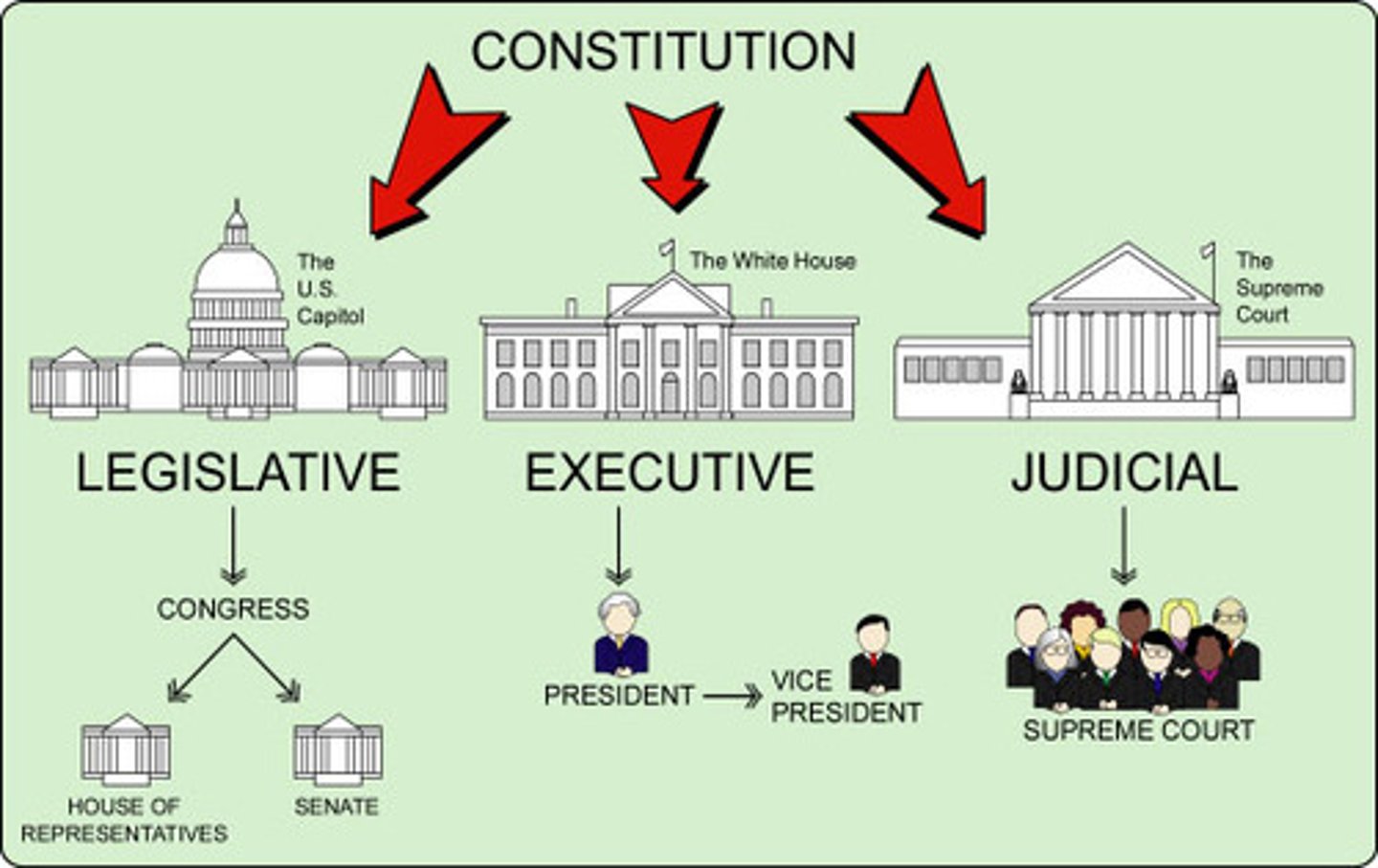
Northwest Ordinance
Enacted in 1787, it is considered one of the most significant achievements of the Articles of Confederation. It established a system for setting up governments in the western territories so they could eventually join the Union on an equal footing with the original 13 states
Albany Congress
A conference called by Franklin in 17454 that proposed unified, colonial action with regards to Indian policy. Rejected by colonies, but seeds of independence were planted
Proclamation of 1763
British government forbade British colonists from settling west of the Appalachian Mountains, and which required any settlers already living west of the mountains to move back east. It was ignored
mercantilism
Economic policy where the colonies were to provide raw materials for England and a place to sell finished British goods
Sugar Act, 1764
The first act that Parliament passed that raised taxes on the colonies. Indirect tax on imported foods from the West Indies. Colonists became so angry that Parliament lowered the duties.
Quartering Act, 1765
Was an act enforced by the British on their North American colonies. It required colonist to provide adequate housing and basic necessities like food and drink to British soldiers.
Stamp Act, 1765
Direct tax imposed on the colonists by Parliament which increased the money colonists paid on printed goods. Purpose was to pay for British soldiers stationed in North America after the French and Indian War.
Sons/Daughter of Liberty
A radical political organization for colonial independence which formed in 1765 after the passage of the Stamp Act. leaders included Samuel Adams and Paul Revere.
Boston Massacre
The first bloodshed of the American Revolution (1770), as British guards at the Boston Customs House opened fire on a crowd killing five Americans
Committees of Correspondence
Colonial organizations created to share information about actions of the British prior to the revolution.
Intolerable Acts
in response to Boston Tea Party, 4 acts passed in 1774, Port of Boston closed, reduced power of assemblies in colonies, permitted royal officers to be tried elsewhere, provided for quartering of troop's in barns and empty houses
First Continental Congress
In 1774, this was the first attempt to create official colonial unity (and kind of a government) against the British. Formed in response to the Intolerable Acts and voted to boycott British good.
Hessians
German soldiers hired by George III to smash Colonial rebellion. Caused some undecided colonists to turn against England
Second Continental Congress
Convened in May 1775, this colonial group was created to officially protest the crack-down of Intolerable Acts. Sent the Olive Branch Petition to King as last ditch effort to stop war. Ultimately, this group was the "government" that organized and fought the war.
Declaratory Act
Act passed in 1766 after the repeal of the stamp act; stated that Parliament had authority over the the colonies and the right to tax and pass legislation "in all cases whatsoever."
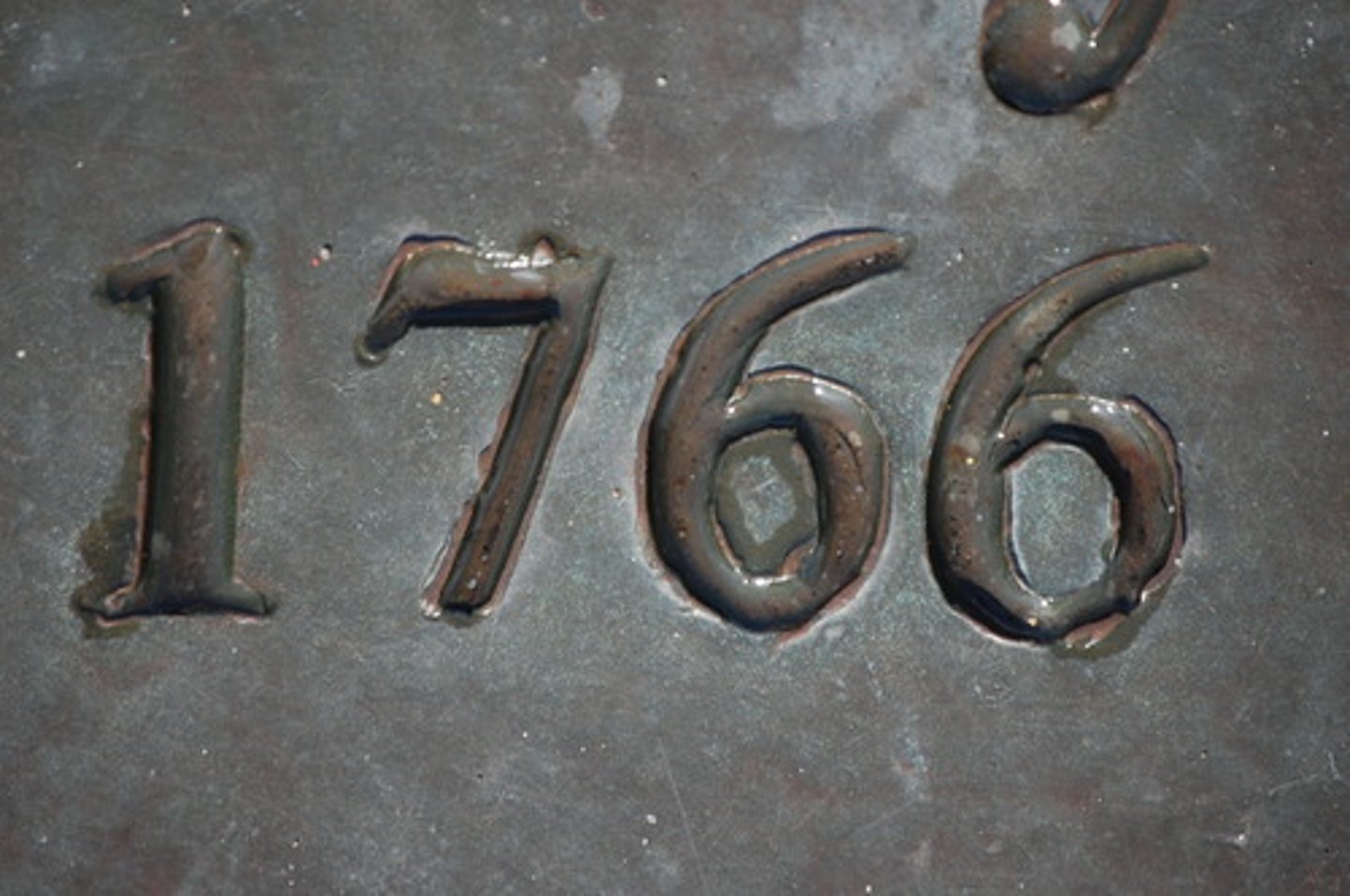
Lexington and Concord
First battle of the Revolutionary War. Later referred to as "The Shot Heard 'Round the World"
Valley Forge
Place where Washington's army spent the winter of 1777-1778, a 4th of troops died here from disease and malnutrition, Steuben comes and trains troops
Saratoga
A battle that took place in New York where the Continental Army defeated the British. It proved to be the turning point of the war. This battle ultimately had France to openly support the colonies with military forces in addition to the supplies and money already being sent.
Treaty of Paris, 1783
agreement signed by British and American leaders that stated the United States of America was a free and independent country
Shays' Rebellion
Rebellion of of farmers in western Massachusetts in 1786-1787, protesting mortgage foreclosures. It highlighted the need for a strong national government just as the call for the Constitutional Convention went out.
Virginia Plan
"Large state" proposal for the new constitution, calling for proportional representation in both houses of a bicameral Congress. The plan favored larger states and thus prompted smaller states to come back with their own plan for apportioning representation.
New Jersey Plan
"Small state" proposal for the new constitution, in which states got an equal number of representatives in Congress
The Great Compromise
1787; This compromise was between the large and small states of the colonies. This resolved that there would be representation by population in the House of Representatives, and equal representation would exist in the Senate; slaves count as 3/5 of a person for counting in population totals
Whiskey Rebellion
In 1794, farmers in Pennsylvania rebelled against Hamilton's excise tax on alcohol. In October, 1794, the army, led by Washington, put down the rebellion. The incident showed that the new government under the Constitution could react swiftly and effectively
Farewell Address, 1796
1796 speech by Washington urging US to maintain neutrality and avoid permanent alliances with European nations; also warned against political parties
Alien & Sedition Acts
Acts passed by federalists giving the government power to imprison critics of the government
Democratic-Republicans
Political party that wanted more power to the states and rose in direct opposition to the Federalist party; supported by western and southern farmers
House of Representatives
the lower legislative house of the United States Congress. The number of people per state is determined by population of the state
Federalist Party
Political party of Alexander Hamilton and John Adams. Supported a strong central government and "urbanization"
Articles of confederation
First form of government
A lot of weaknesses
No strong central government
Strong state governments
Causes economical problems and failure
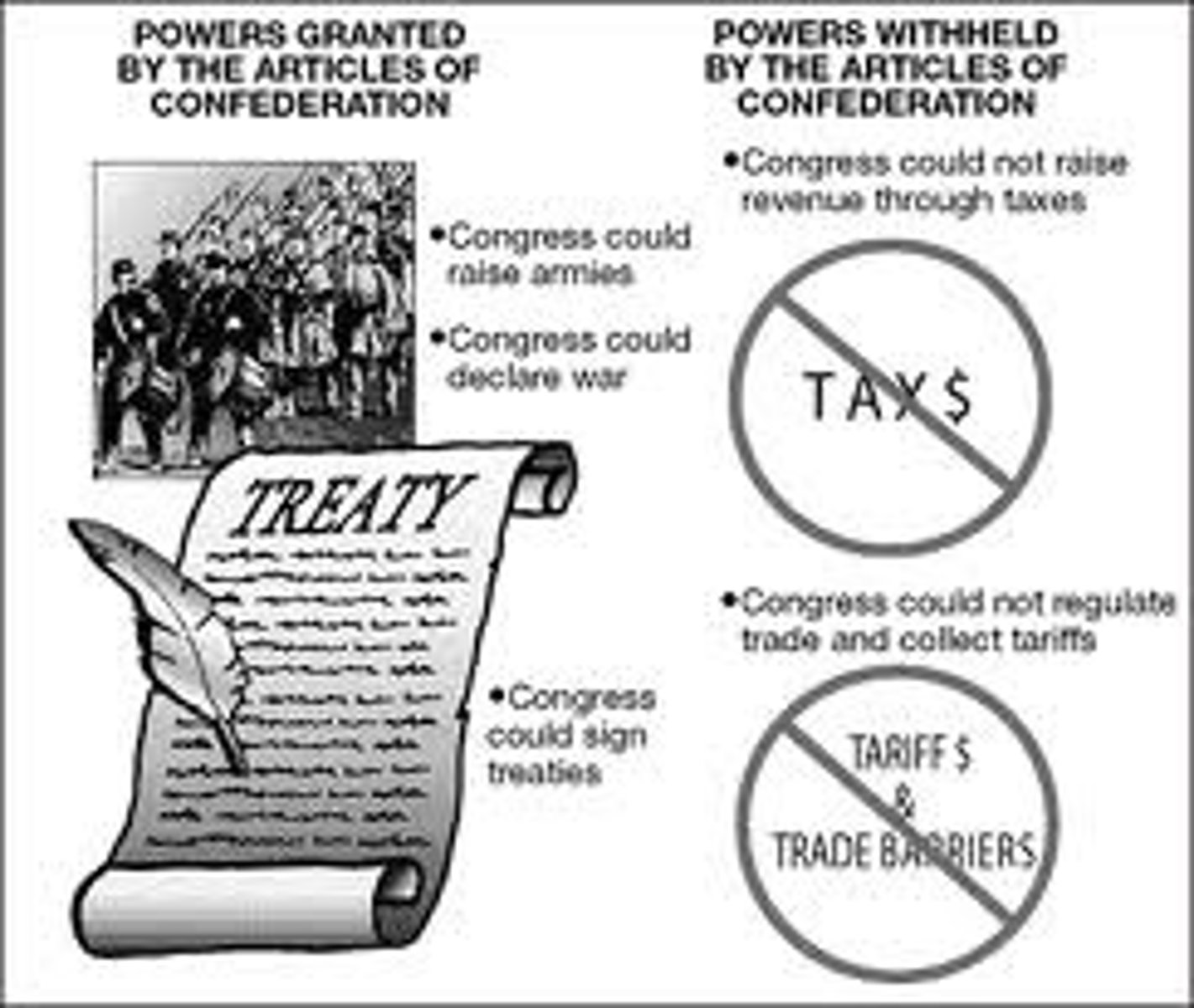
Hamilton
Tackle debt- grant money back to people, national bank create national government, manufacturing establish tax revenue
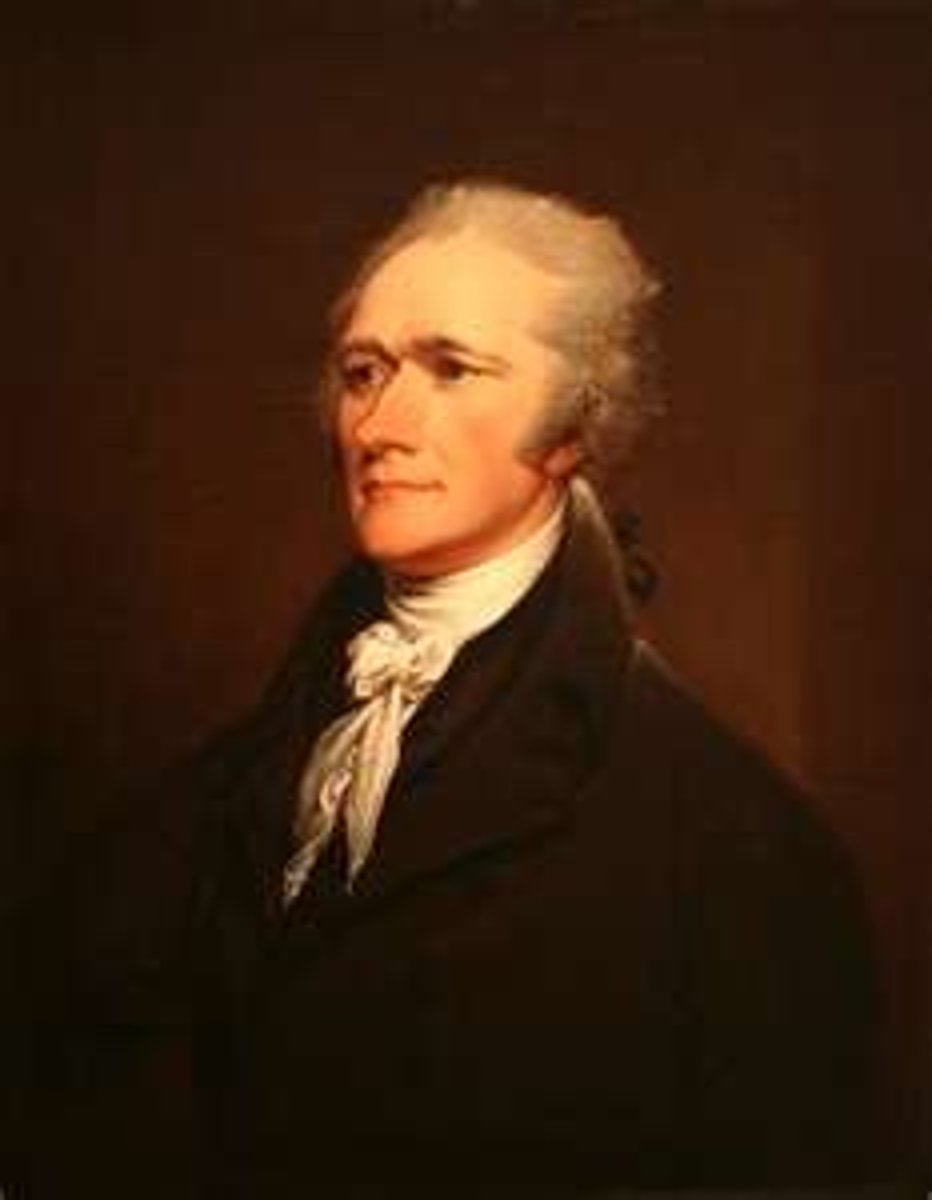
John Locke
English philosopher who advocated the idea of a "social contract" in which government powers are derived from the consent of the governed and in which the government serves the people; also said people have natural rights to life, liberty and property.
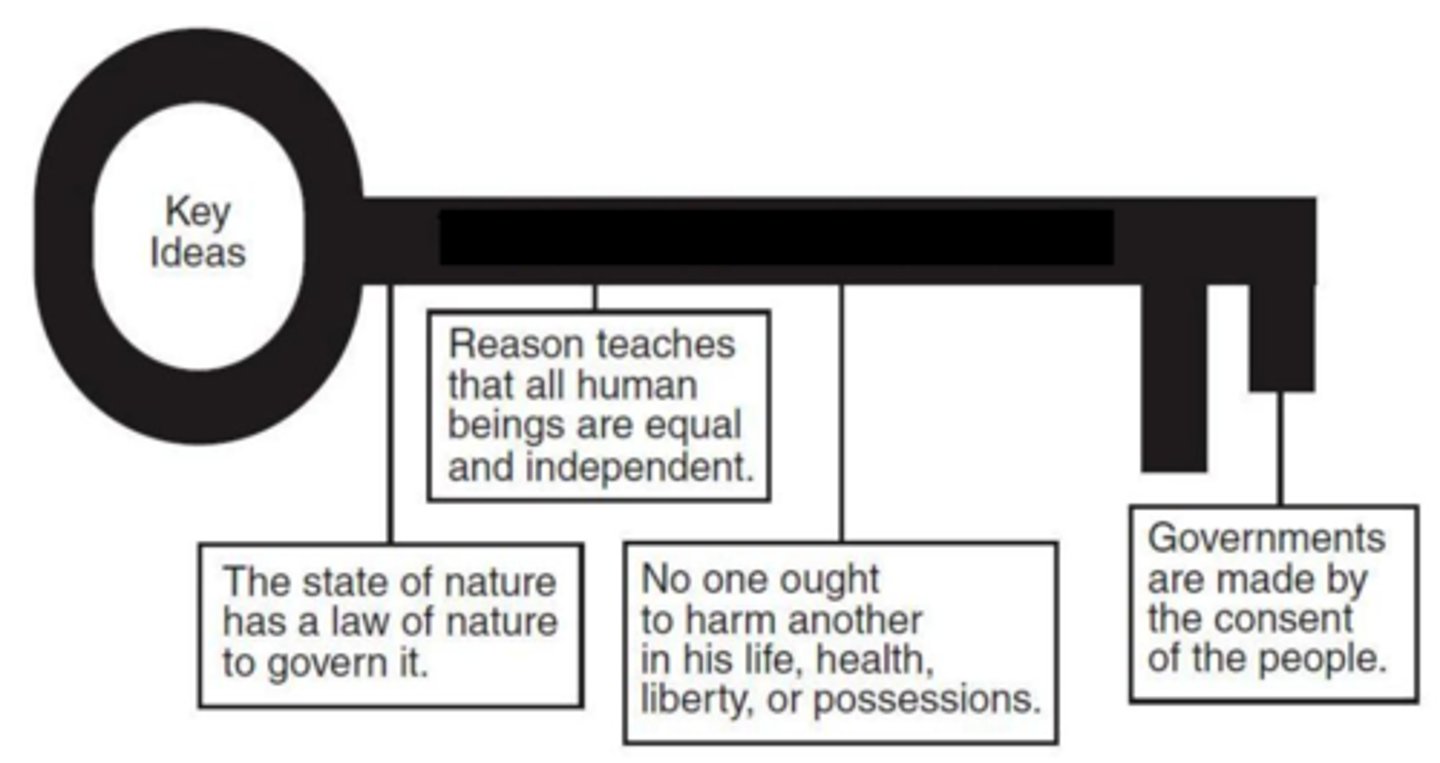
Thomas Jefferson
Wrote the Declaration of Independence, Leader of the Democratic-Republican Party
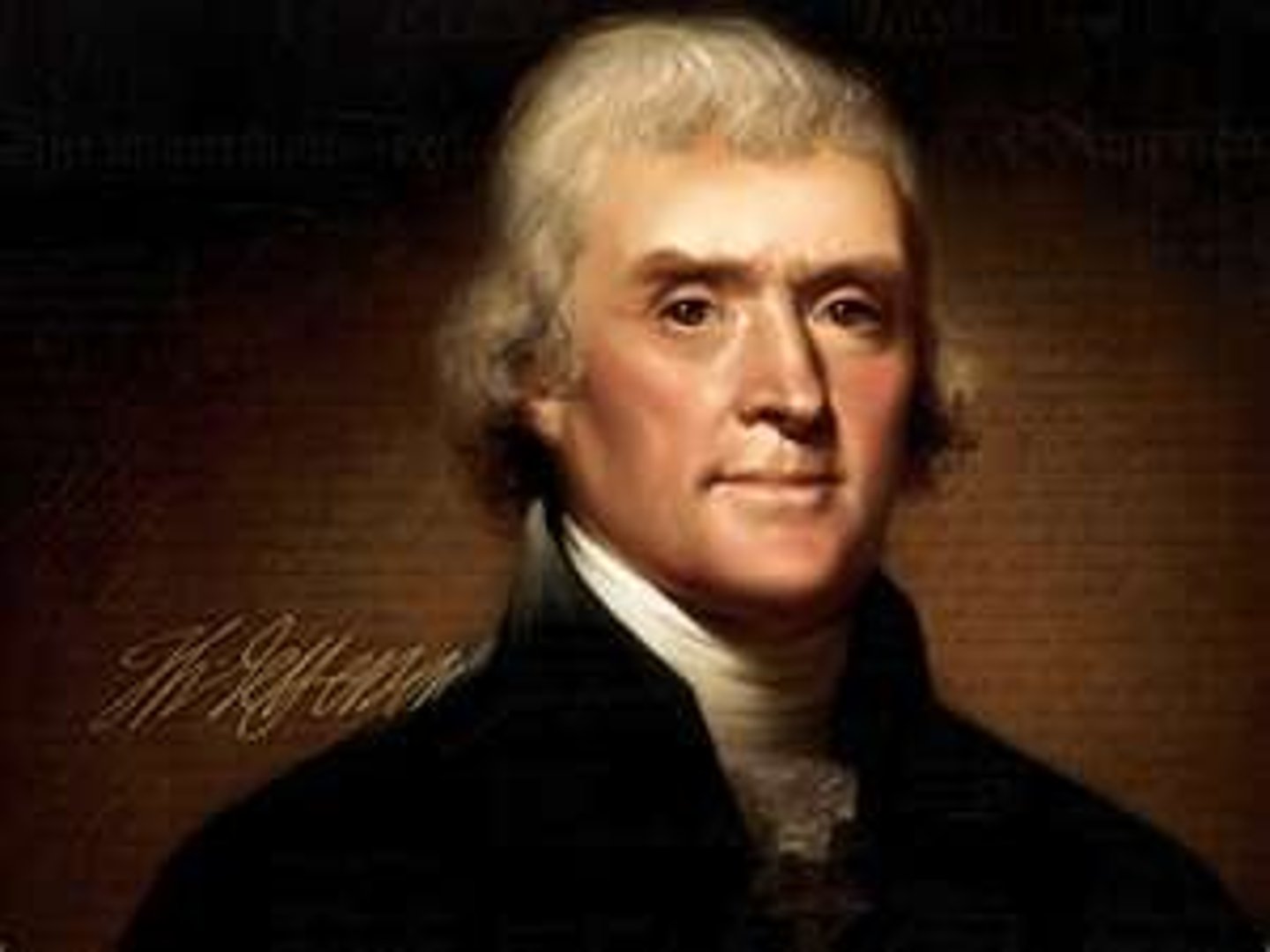
Jay's treaty
1794- British and US agreed- British trade w/ Americans and the British leave northwest territory
XYZ Affair (1797)
Diplomatic conflict between France and the United States when American envoys to France were asked to pay a hefty bribe for the privilege of meeting with the French foreign minister. Many in the U.S. called for war against France, while American sailors and privateers waged an undeclared war against French merchants in the Caribbean.
Federalist Papers
A collection of 85 articles written by Alexander Hamilton, John Jay, and James Madison under the name "Publius" to defend the Constitution in detail.
Pinckney's Treaty (1795)
This treaty between the U.S. and Spain which gave the U.S. the right to transport goods on the Mississippi River and to store goods in the Spanish port of New Orleans
Embargo Act of 1807
This act issued by Jefferson forbade American trading ships from leaving the U.S. It was meant to force Britain and France to change their policies towards neutral vessels by depriving them of American trade. It was difficult to enforce because it was opposed by merchants and everyone else whose livelihood depended upon international trade. It also hurt the national economy.
Impressment
British (and French) practice of taking American sailors and forcing them into military service